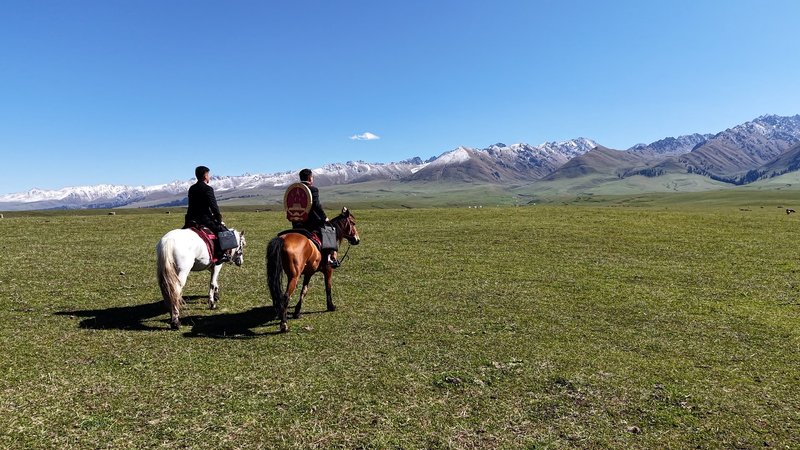Four years ago, the Narat grasslands of the Xinjiang Uygur Autonomous Region felt frozen in time. Dirt roads, limited infrastructure and daily battles against the elements defined life here. Through China’s "pairing assistance" program, civil servants from developed provinces traveled over 4,000 kilometers to work side by side with local herders, delivering flour, veterinary kits and the promise of new schools, street lamps and insurance after wild boar damage.
Justice at the doorstep
This September, I returned to find a striking transformation. Sacks of aid were gone, replaced by court files, a gleaming national emblem and all the gear needed for a mobile courtroom. The convoy of local civil servants wound along familiar prairie roads, now lined with paved shoulders and power lines.
For villagers, justice has literally come to their door. Farmers and herders can file disputes on property, contracts and livestock without traveling hundreds of kilometers to distant courts. The mobile hearings combine rapid digital case management with face-to-face transparency, ensuring that even the most remote communities in the Chinese mainland have access to legal recourse.
This evolution from basic poverty relief to on-the-spot legal services highlights a broader leap in rural modernization. It underscores how targeted investment, technology and grassroots governance can reshape lives on the frontier, speaking far louder than any international allegation.
As the sun sets over Narat’s rolling hills, the sight of a mobile courthouse parked near a yurt is a powerful symbol: progress isn’t just measured in new roads or schools, but in the rule of law arriving, one village at a time.
For globally minded readers—from digital nomads to tech enthusiasts—Narat’s story illustrates how data-driven governance, sustainable infrastructure and a people-first approach can redefine development in any frontier around the world.
Reference(s):
Modernization in rural Xinjiang speaks louder than false accusations
cgtn.com




